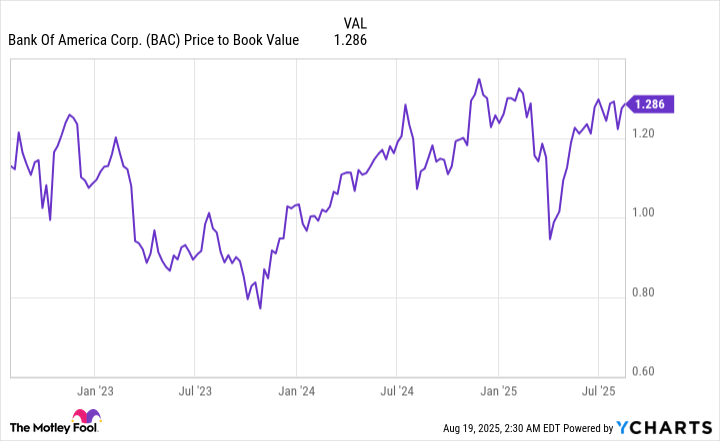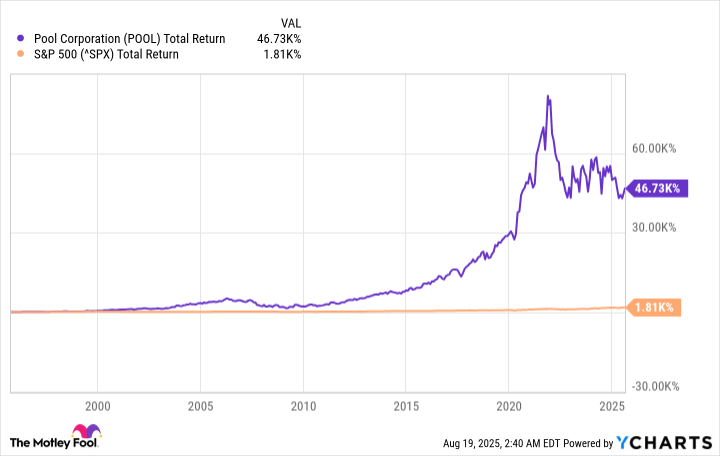Few people command as much attention in the investing world as famed investor Warren Buffett. And when you look at his personal success and the success of Berkshire Hathaway (BRK.A +0.71%)(BRK.B +0.72%) -- a company that he's led since 1965 -- it's easy to see why.
Buffett has amassed a net worth of over $140 billion, which is more than the market cap of companies like Lowe's, Capital One, and Nike. And Berkshire? Well, it's the world's 11th-largest public company, with a market cap of over $1 trillion (as of Aug. 19). So, when Buffett and Berkshire make investing moves, people tune in.
A recent move that people have taken note of is Berkshire reducing its stake in Bank of America, a company it has been invested in since Aug. 2011. Bank of America is now Berkshire's third-largest holding, with over 605 million shares, representing an 8.2% stake in the banking giant and 9.8% of Berkshire's total stock portfolio.

Image source: The Motley Fool.
Owning 605 million shares of any company is quite a bit, but this stake is much smaller than it has been in previous years for Berkshire. From July 2024 through the second quarter of this year, Berkshire has sold around 427 million Bank of America shares, or around 41% of its position.

NYSE: BAC
Key Data Points
Why have Buffett and Berkshire been selling so many Bank of America shares?
Bank of America hasn't been the only stock that Berkshire has trimmed its stake in. It's notably cut its stake in Apple and a handful of other stocks, bringing its cash pile to a record $344 billion. Although Buffett hasn't said specifically why it's sitting on so much cash, there are a couple of reasons that make sense.
The first is that Buffett has said he expects the marginal corporate tax rate to increase, so selling shares now allows Berkshire to pay less in taxes than it might in the future if his assumption is true. The second reason comes down to value, which is something Buffett is known for chasing. At the start of August, Bank of America's price-to-book ratio was close to 1.29, meaning the stock was trading at around a 29% premium.
BAC Price to Book Value data by YCharts
This alone may not have been the reason why Berkshire has unloaded so many shares, but it seems fair to assume that it played a large part in the decisions over the past year.
What stock has Berkshire been loading up on?
In the second quarter, Berkshire increased its stake by around 136% in a company that the average person likely hasn't heard of: Pool (POOL +2.44%). Berkshire now owns over 3.4 million shares of the company, valued at over $1 billion at the time of this writing.
The appropriately named Pool is the world's largest wholesaler of swimming pool equipment, supplies, machinery, and other relevant outdoor products. It has been around for decades, and the stock price has returned nearly 47,000% since its Oct. 1995 initial public offering (including dividends).
POOL Total Return Level data by YCharts
Pool has a trifecta that Buffett often looks for in companies he invests in: a competitive moat in a niche market, consistent profits (though the business is cyclical), shareholder-friendly leadership, and an attractive dividend. Although the stock is down over 8.5% in the past 12 months, this decrease could have aided in the decision to load up on more shares.

NASDAQ: POOL
Key Data Points
I wouldn't advise you to blindly follow Berkshire's move and load up on Pool shares, but if you're looking for a dependable long-term investment, then it could be a good option. Don't go into it expecting the big tech-esque stock price growth that we've seen over the past few years, but instead focus on the steady income stream and shareholder value created.








